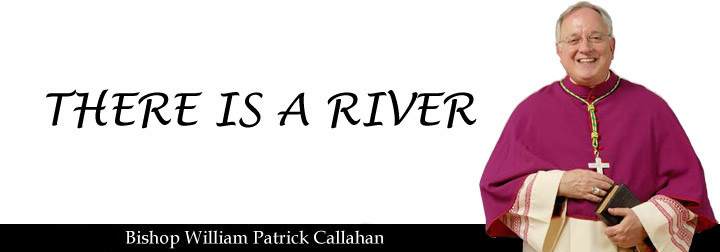Two years ago, our holy father, Pope Bendict XVI, said “the thanksgiving to God expressed in the Mozart Mass in C Minor is not a superficial gratitude given lightly.” The piece was played for his brother, Msgr. Georg Ratzinger’s 85th birthday in January of 2009. The Pope continued: “the piece is wholehearted and reflects Mozart’s interior struggle, his search for forgiveness, the mercy of God and, then, from these depths, his joy in God shines more brightly than ever.”
Gratitude, my dear brothers and sisters, is an astonishing thing; a rare pearl in the jewel box of human sentiment, a treasure that multiplies as it is spent. For Mozart, gratitude was expressed in such a rare mixture of sound that one might think the angels delivered it note for note. In a wonderful abandonment of time and space, the listener is captivated, and the soul takes flight. Gratitude fills the mind and heart of humanity on so many different levels and in so many ways. Music is one of the most common ways to express gratitude, but there are so many others.
Our Eucharist – the true presence of Jesus Christ: body, blood, soul, and divinity – constitutes for us the most eloquent and complete expressions of gratitude we can ever know in this life! Our hearts and minds cannot contain the mystery; and the soul, the eternal part of our being, experiences a joy that we may not fully know until we experience it completely in the Kingdom of Heaven.
Thanksgiving is a great holiday, a national “free-day” for most folks.
At least until now, it remains unsullied by consumerism that is ever so gradually clutching and grabbing at its short span of just a few hours of family gathering and tradition. As family life weakens in our nation, Thanksgiving is becoming a chore and a duty, an obligation of some forgotten simpler way of life that could be so much more “hip” if we could just “move it along.”
Like a Mozart symphony or motet, gratitude needs to be lavish and savored. Take your time saying: “Thanks!”
Express yourself with joy and with an open heart. May this national holiday, the patrimony of presidents, and the tradition of our great and beloved country, truly remind us to lift up our minds and hearts to God. However rich or poor, however grand or simple, the words: “thank you” are an offering of the heart; they bring us great contentment, knowing that we recognize the goodness of others.
“Thank you” makes us realize further that we are not alone and that we are subject to others.
“Thank you” inspires us with true humility and helps us know that we are loved.
Thank you, my dear brothers and sisters. May you share the bounty of God’s good earth with one another as He intends. God be with you.
…and I’ll see you at Sunday Mass.
